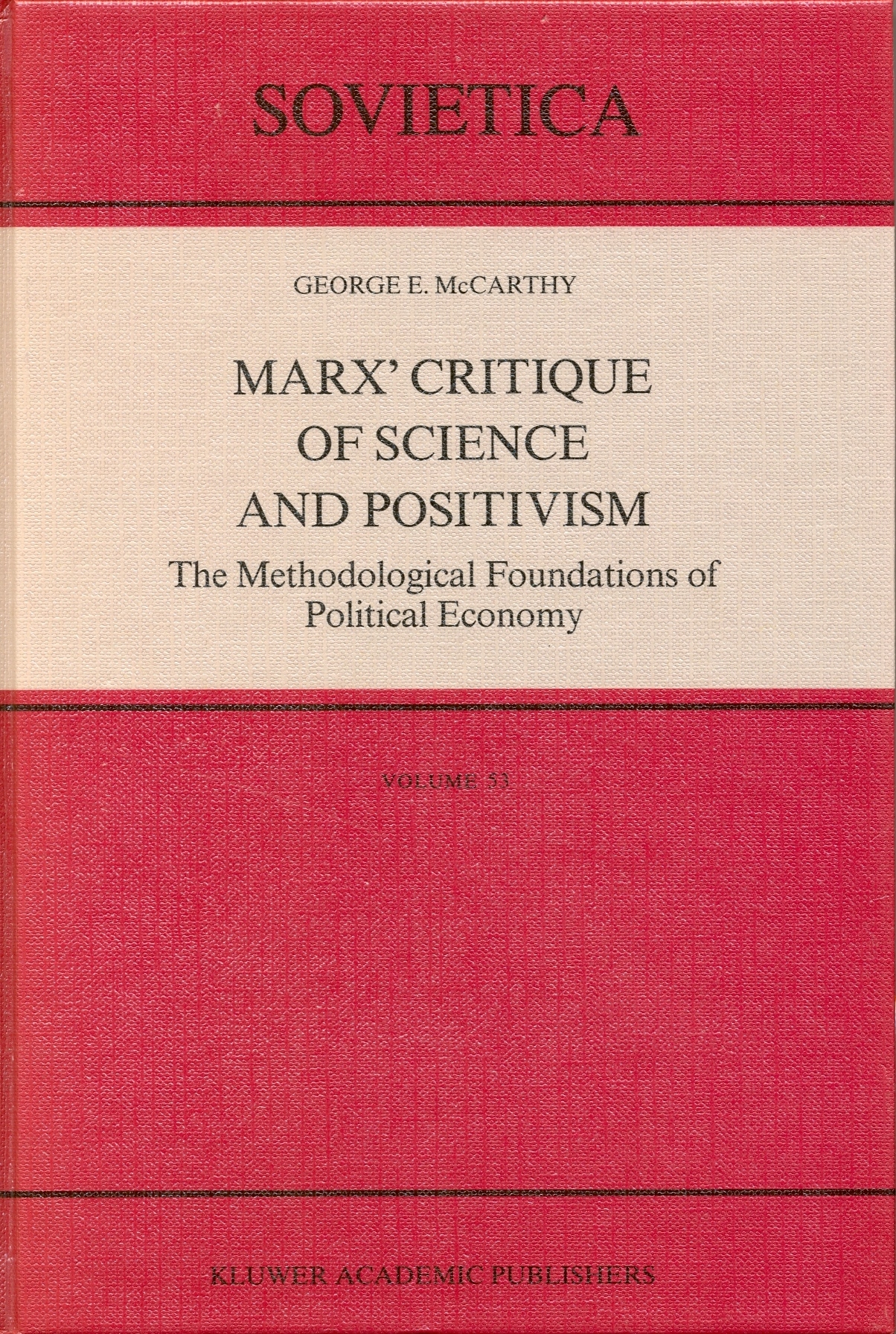MARX'S CRITIQUE OF SCIENCE AND POSITIVISM
THE METHODOLOGICAL FOUNDATIONS OF POLITICAL ECONOMY
Table of Contents
Acknowledgments
Introduction
Part I: 18th- and 19-Century German Philosophy:
Epistemology and Metaphysics
Chapter One: Science and Critique: The Evolution of the German
Perspective from
Kant to Marx
Introduction
Immanuel Kant and the Critique of Pure Reason
Hegel and the Radicalization of the Critical Method
Marx's Turn From Positivism to Science as a Critique of Political Economy
The Critical Method in German Idealism and Political Economy
Chapter Two: Time and Critique: The Temporal Dimensions
of the Dialectical Method
Introduction
Logic, Ontology, and Time
Temporality and Science in Hegel's Logic: Dialectics and the Concept
Realization of the Concept and the Concrete Totality
Temporality and History in Marx's Later Political Economy
Chapter Three: Materialism and Critique: The Schelling and
Feuerbach Responses to Hegel
Introduction
Schelling's Rejection of Hegel's Theory of Objectivity and Identity
Feuerbach's Rejection of Hegel's Synthesis of Consciousness and Reality
The Empiricism of Schelling and Feuerbach and Ambivalence of Marx's New Materialism
The Philosophical Foundations of Marx's Materialism
Part II: Epistemology and Method in Marx's Later Works
Chapter Four: Rethinking Method: Reflective Reconstruction
of History
Introduction
Epistemological Grounding of Political Economy
The Hegelian Notion of Begriff and Political Economy: History and Logic
The Dialectic and the Logic of Capital
Science, Political Economy, and Ontology
From Simple Commodity Production to Capitalist Production
Chapter Five: Against Epistemology and Foundationalism: From
the Theory
of Political Economy to Social Practice
Introduction
Hegel and Marx: From the Negation of Science to the Negation of Epistemology
Marx's Theory of Truth
Marx's Dilemma of Objective Validity and Truth as Social Praxis
Science as Social Practice and the Critique of Privileged Representations
The Duhem-Quine Thesis and the Beginning of Scientific Conventionalism
Social Practice and the Post-Empiricist Philosophy of Science: Rorty and Feyerabend
Part III: Meta-Critique and Political Economy:
Marx's Legacy
Chapter Six: Epistemology and Political Economy:
From Philosophy to Social Theory
Introduction
Ideology, Consciousness, and the Sociology of Knowledge
Historical Materialism as Social Epistemology
Social Ethics and the Meta-Theory of Political Economy
Notes
Bibliography
Index

